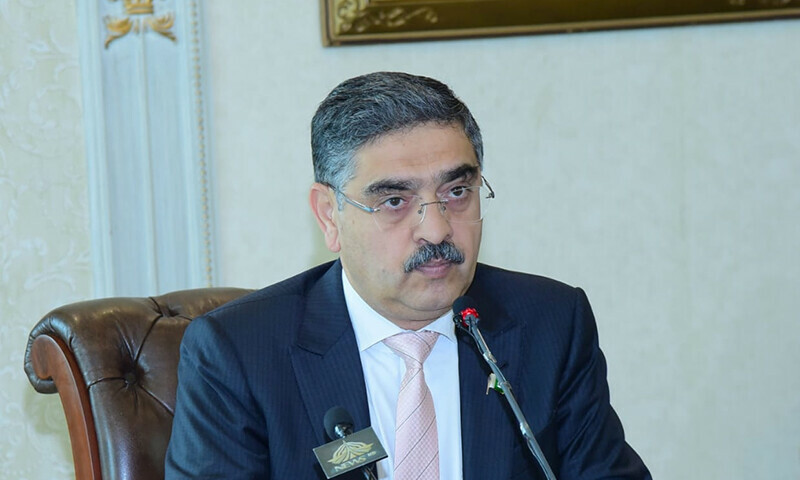CPEC enters second phase: Caretaker PM Kakar optimistic about foreign investment

Caretaker Prime Minister Anwaar-ul-Haq Kakar on Monday expressed the hope that foreign investment projects worth $25 billion from the Middle Eastern countries, including Saudi Arabia, would be realised in a period of two to five years.
He made these remarks during an interaction with foreign media representatives in Islamabad.
Kakar said regardless of any political association, the people of Balochistan welcomed every project under the China-Pakistan Economic Corridor (CPEC), which had entered the second phase.
He reiterated the government’s resolve to go to any extent to protect the Chinese workers participating in the CPEC projects.
Referring to the massive reserves worth $6 trillion of copper and gold in Balochistan, the prime minister said the Reko Diq project was about to start soon.
He called for all the stakeholders to formulate a model to explore the mineral-rich area to make the world see Pakistan through a different prism.
Out-of-box solutions to power crisis
To a question about the ongoing power crisis, the caretaker premier assured that his government was exploring realistic options to come up with out-of-box solutions to provide relief to electricity consumers.
He said the government would make informed decisions to satisfy the masses on the issue of electricity bills without deviating from the country’s commitments with the international financial institutions. Mentioning the problems of circular debt, power theft, and taxes, the prime minister said the government would introduce short-term solutions to the issue without undermining the agitating people.
Kakar assured that the interim government was mandated to facilitate holding the general elections as early as possible while observing the constitutional obligations. He said the Constitution called for the delimitation following the population census.
PM Kakar said without redesigning the government structure, the interim setup was mainly focused on rearranging the fiscal and monetary policies to build an edifice for economic revival. Calling the Special Investment Facilitation Council (SIFC) a strategy for economic regeneration, he said it focused on agriculture, mines and minerals, defence production, and information technology.
However, he also spelled out the economic reform agenda of his government, saying that the imminent steps included the privatization of two or more power distribution companies. He said the reforms needed in taxation and power sectors and that the government would leave behind a basis for mid-level reforms. Kakar said the government was pursuing a policy of doing the doable and providing a strategic direction to the economic planning. He said all the registered political parties would be provided a level playing field to contest the general elections without any discrimination.
However, he said in certain instances, political behavior turned into vandalism, and the country’s law was already in vogue to deal with such conduct. Talking about the terror attacks by the TTP, the prime minister drew attention to the leftover military equipment by the US and allied forces back in Afghanistan, which he viewed were becoming a threat to peace, thus necessitating a coordinated approach to deal with the challenge.


